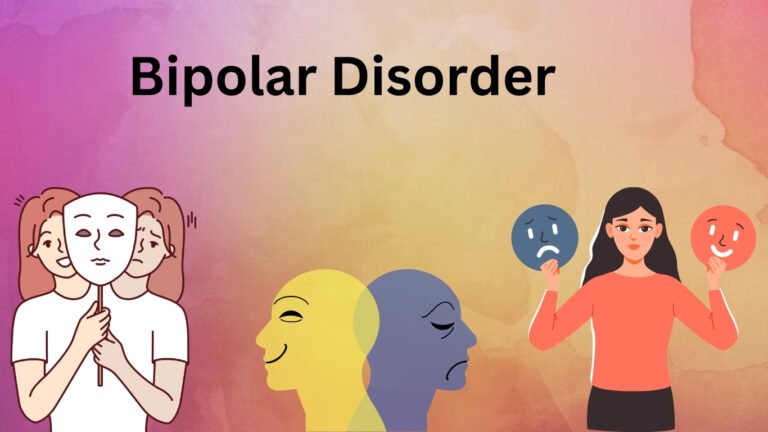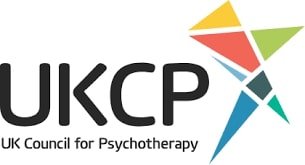
Bipolar: Causes, Symptoms and Effective Treatment Strategies
Introduction:
Formerly known as manic depression, bipolar disorder is a chronic, complex mental health condition characterised by sudden, extreme mood changes which can swing between high (hyper/manic, or hypomanic) and low (depressive) extremes.
This mood instability can have serious consequences for everyday life, impacting decision-making, energy and relationships.
However, with accurate diagnosis and a custom treatment plan, including lifestyle modifications, medications, and therapy, people with bipolar disorder can live a holistic, rewarding life and effectively manage their symptoms.
This article explores the different types of bipolar disorder, the underlying causes, and effective strategies for bipolar treatment as well as promoting long-term stability.
This article is for educational and informational purposes only. Please see full disclaimer below.
What is Bipolar Disorder?
Bipolar disorder is a chronic mood disorder defined by extreme mood dysregulation, specifically repeated, severe mood value shifts as opposed to general fluctuations in behaviour and/or mood which occur in daily life. These mood dysregulations are most severe in Bipolar I disorder, which is typified by extreme mood changes, and often impede on everyday functioning (American Psychiatric Association, 2013)
There are three primary types of bipolar disorder:
Bipolar I Disorder: Defined by severe emotional highs (mania) lasting at least seven days, often requiring hospitalization. Depressive episodes commonly occur but aren’t essential for diagnosis.
Bipolar II Disorder: Features alternating depressive and hypomanic episodes, where hypomania is less severe than mania. Although hypomania is milder, depressive episodes can severely impact life.
Cyclothymia (Cyclothymic Disorder): A less severe yet persistent mood disorder characterized by episodes of hypomania and depression lasting at least two years. Symptoms, albeit milder, can still negatively affect emotional well-being (Goodwin & Jamison, 2007), although patient symptoms do not generally fulfill all criteria for bipolar episodes.
Signs and Symptoms of Bipolar:
Bipolar signs and symptoms in a person with bipolar are directly dependent on the mood phase that they are currently in/experiencing. Typically, people with bipolar disorder will swing between mania/hypomania and depression, although mixed episodes are also possible where an individual has features of both mania and depression at the same time.
Symptoms of Mania:
- Decreased need for sleep
- Inflated self-esteem, increased energy, or restlessness
- High spirits or severe irritability
- Increased self-esteem or grandiosity
- Impaired judgment leading to impulsive behaviors, such as spending sprees or risky behaviors
- Very fast speech, or racing thoughts (Miklowitz, 2008)
Symptoms of Depression:
- Feeling sad, or hopeless
- Diminished or excessive guilt or worthlessness
- Fatigue or low energy
- Inability to concentrate or make decisions
- Alterations in appetite (binge eating/loss of appetite) or weight (considerable weight gain/loss)
- Sleep disturbances (insomnia or hypersomnia)
- Suicidal ideation (Goodwin & Jamison, 2007)
As such, the duration, intensity and frequency of these symptoms can change, making medical diagnosis of bipolar disorder very difficult without going through the correct professional assessment.
What Causes Bipolar Disorder?
The specific origin of bipolar disorder is unclear. Researchers believe that bipolar disorder results from a combination of biological, genetic and environmental factors.
Imbalances in brain neurochemicals such as dopamine and serotonin can disrupt mood, which can manifest as hypomanic/manic, depressive and/or mixed episodes biologically. (NIMH, 2011).
Genetic factors can include a family history of bipolar disorder, suggesting (American Psychiatric Association, 2013) a hereditary component.
At the environmental level, various factors such as changes in life circumstances (such as big moves, deaths in the family, and similarly stressful life events or trauma) can lead to mood episodes in those susceptible (while these don’t cause the disorder per se, they can trigger or aggravate symptoms in susceptible individuals). (Baldessarini, 2013).
Effective Treatments for Bipolar Disorder:
Managing bipolar disorder involves a combination of medication, psychotherapy, and lifestyle adjustments.
- Medication
Medications are a cornerstone of bipolar treatment in stabilising mood, reducing symptom severity and preventing the emergence of manic/hypomanic and depressive episodes.
The specific medications an individual with bipolar disorder may be prescribed are individually tailored to them based on the type and severity of symptoms they experience, in addition to their individual tolerability of the medications used.
Common Medications For Bipolar Disorder in 2025:
Mood stabilisers:
- Mood stabilisers are a group of medications whose overall effect is stabilising mood, in individuals prescribed them, from pronounced ‘highs’ (manic, or hypomanic episodes/symptoms) on one hand and depressive ‘lows’ on the other. Commonly, lithium and/or anticonvulsants (such as sodium valproate and carbamazepine; Goodwin & Jamison, 2007) are prescribed as mood stabilisers to manage bipolar disorder symptoms, although some antipsychotics (notably, aripiprazole and quetiapine) have mood-stabilising effects alongside their antipsychotic effect.
- Lithium is one of the oldest and most effective treatments for bipolar disorder, in particular the treatment of manic (or hypomanic) episodes and maintaining remission (symptom-free periods of time, where the individual experiences no manic or depressive episodes).
In addition, anticonvulsants such as carbamazepine (Tegretol), sodium valproate or lamotrigine (Lamictal) have also been found effective in treating mood fluctuations; carbamazepine and sodium valproate are often prescribed for rapid cycling bipolar disorder, in which manic/hypomanic and depressive symptoms rapidly alternate, (and these anticonvulsants have been found effective in treating mood fluctuations; Goodwin & Jamison, 2007) alongside mixed episodes, where manic symptoms coexist with depressive symptoms, or where individuals are lithium-resistant.
Antipsychotics:
- Antipsychotic medicines such as aripiprazole (Abilify), quetiapine (Seroquel), risperidone (Risperdal) or olanzapine (Zyprexa) are used in bipolar disorder to treat severe mania or depression. Aripiprazole and olanzapine are both approved for the long-term maintenance therapy, or stabilisation of bipolar disorder, either by themselves or in conjunction with mood stabilisers such as lithium/an anticonvulsant (Miklowitz, 2008). Aripiprazole and risperidone are particularly effective for the treatment of acute mania, whereas quetiapine is especially utilised in the treatment of bipolar depression.
- Antipsychotics are also beneficial for those who do not respond well to the use of a mood stabilising medicine alone.
- Antidepressants: These medicines include the classic class of selective serotonin reuptake inhibitors (SSRIs), such as fluoxetine (Prozac) and sertraline (Zoloft), alongside serotonin-norepinephrine reuptake inhibitors (SNRIs) such as venlafaxine (Effexor XR).
- Antidepressants are often utilised in treatment of bipolar depression (depressive episodes which a person with bipolar may experience). However, antidepressants should be prescribed with caution, and it is recommended that antidepressants are co-prescribed with mood stabilisers to individuals with bipolar depression in order to avoid triggering manic episodes (Baldessarini, 2013).
Psychotherapy:
- Therapy is an essential component of treatment, supporting patients to develop coping strategies and improve emotional regulation.
- Cognitive Behavioral Therapy (CBT) focuses on helping the individual to recognise and understand patterns of unhelpful thoughts and behaviours, challenge self-limiting or unhelpful thoughts and beliefs, and develop more positive, balanced ways of thinking via exploration of thoughts (Miklowitz, 2008).
- Family-Focused Therapy (FFT) aims to involve family members alongside the individual with bipolar disorder themselves within the therapy environment, in order to enhance communication and create a supportive environment for the individual. FFT thus aims to improve communication between the individual and their family members, in addition to fostering understanding and problem-solving skills within the family unit (Goodwin & Jamison, 2007), promoting a more supportive, understanding environment.
- By educating family members about bipolar disorder, FFT helps families to recognise early warning signs of mood episodes, promote treatment adherence, and reduce stressors that may trigger symptoms, ultimately improving long-term outcomes and strengthening relationships.
Lifestyle Modifications:
- Self-care practices complement medical treatments and reduce the risk of episodes, for example:
- Regular Exercise: Physical activity, such as moderate-intensity exercise (e.g., cardio, lifting weights) reduces stress and stabilises mood.
- Balanced Diet: Nutrient-rich foods such as fish and other seafoods, legumes, nuts, cheese, eggs and lean meat can support brain function by facilitating biosynthesis of neurotransmitters (from the amino acids found in high-protein foods) and thereby promote overall good mental health.
- Consistent Sleep Patterns: Maintaining a regular sleep schedule can help to regulate mood, particularly as sleep deprivation itself can precipitate mood episodes (NIMH, 2011) in bipolar disorder.
Bipolar Management: Living with Bipolar Disorder
Managing bipolar disorder requires ongoing effort and support. Effective strategies include:
- Identifying Triggers: Recognise stressors, alongside early warning signs of mood episodes.
- Building a Support System: Stay connected with family, friends, or support groups.
- Practicing Stress Management Techniques: Mindfulness, meditation, and relaxation exercises can improve emotional stability.
When to Seek Help
It’s important to seek professional assistance if you or a loved one experiences:
- Severe mood swings that disrupt daily life
- Difficulty maintaining relationships or responsibilities
- Suicidal thoughts or behaviours
Mental health professionals, such as psychotherapists and psychiatrists, can help provide the necessary diagnosis, treatment, and support for effective management.
Bipolar disorder is a treatable condition, and with the right combination of medication, therapy, and lifestyle adjustments, individuals can lead balanced, productive lives.
Conclusion:
In conclusion, bipolar disorder is a complex, long-term mood disorder, characterised by extreme mood swings, changes in energy level and activity, and corresponding psychosomatic effects depending on the mood phase the person with bipolar is currently experiencing.
Although the precise causes of bipolar disorder are still unknown, the condition is thought to be influenced by a combination of biological, genetic and environmental factors.
Personalised treatment, often a combination of medication, psychotherapy, and lifestyle changes, usually allows individuals with bipolar disorder to stabilise long-term and live productive lives. Being aware and intervening early is key to being able to manage symptoms effectively and reduce the significant effect this disorder can have on everyday life.
FAQ:
FAQ
Q: What is bipolar disorder?
A: Bipolar disorder is a lifelong mood disorder characterized by significant fluctuations in mood, ranging from manic or hypomanic episodes to depressive episodes (American Psychiatric Association, 2013).
Q: What are the primary types of bipolar disorder?
A: The primary types include Bipolar I Disorder, Bipolar II Disorder, and cyclothymia (Goodwin & Jamison, 2007).
Q: What causes bipolar disorder?
A: While the exact cause is unknown, bipolar disorder is believed to result from a combination of biological factors (such as neurotransmitter imbalances), genetic predisposition, and environmental triggers (NIMH, 2011; Baldessarini, 2013).
Q: How is bipolar disorder treated?
A: Effective treatment often involves a combination of medication (mood stabilisers, antipsychotics, and sometimes antidepressants), psychotherapy (such as CBT and FFT), and lifestyle modifications (regular exercise, balanced diet, and consistent sleep patterns) (Miklowitz, 2008; Goodwin & Jamison, 2007).
Q: When should someone seek help for bipolar disorder?
A: Professional help should be sought if severe mood swings begin to disrupt daily life, relationships, or responsibilities, or if there are suicidal thoughts or behaviours (NIMH, 2011).
References:
American Psychiatric Association (2013) Diagnostic and Statistical Manual of Mental Disorders (5th ed.). Arlington, VA: American Psychiatric Publishing.
Baldessarini, R.J. (2013) Treatment of Bipolar Disorder: A Review. Lancet Psychiatry, 2(8), pp. 711–723.
Goodwin, F.K. & Jamison, K.R. (2007) Manic-Depressive Illness: Bipolar Disorders and Recurrent Depression. 2nd ed. Cambridge: Cambridge University Press.
Miklowitz, D.J. (2008) Bipolar Disorder: A Family-Focused Treatment Approach. New York: Guilford Press.
National Institute of Mental Health (NIMH) (2011) Bipolar Disorder. Available at: https://www.nimh.nih.gov/health/topics/bipolar-disorder (Accessed: 15 February 2025).
NICE (2006) Bipolar Disorder: The NICE Guideline on the Identification and Management of Bipolar Disorder in Adults, Children and Young People in Primary and Secondary Care. London: National Institute for Health and Care Excellence.
Stein, D.J., et al. (2010) ‘Obsessive-Compulsive Disorder’, The Lancet, 376(9753), pp. 491–499.
Disclaimer: The author, Sabbir Ahmed, is a registered psychotherapist (UKCP Reg: 2011164676). Sabbir has written this article for informational and educational purposes only, and referenced relevant sources when writing this article.
Reading this article, in and of itself, does not create a therapist–client relationship.
All content is provided on an “as is” basis; no guarantees are made as to its accuracy or completeness.
The information contained on Kind Soul Psych is for general information purposes only and does not purport to be, or constitute, medical and/or legal advice.




All Rights Reserved.

